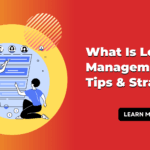Understanding keywords is crucial for anyone aiming to succeed in SEO, especially as we approach 2025. Keywords are more than just words—they connect your content with users’ search queries and help search engines match your pages with relevant topics. This blog explores seven essential things to know about keywords, covering everything from research techniques to using long-tail keywords for SEO. Whether you’re an SEO beginner or a pro, these insights will guide you in refining your keywords strategy for better rankings, more traffic, and a stronger online presence.

1. The Basics of Keywords: Why Are They Still Relevant?
Despite evolving search engine algorithms, keywords remain the foundation of any SEO strategy. They connect your content to the users’ search queries, helping search engines understand and match your pages to relevant searches. However, as we move into 2025, it’s essential to understand that keywords for SEO have transformed.
The relevance of keywords goes beyond exact matches. Google’s algorithm has improved to better grasp the intent behind searches. For instance, if someone searches “how to rank with keywords SEO,” Google will consider results that address ranking strategies, even if they don’t use the exact phrase.
2. Using Keyword Intent to Capture Your Audience
Understanding the intent of keywords is important to success. Keyword research in 2025 involves more than just finding high-volume terms; it is also about analysing user intent. Here are the four primary categories of keyword intent:
- Informational Keywords: People looking for answers, tips, or knowledge (e.g., “how to use keywords in content”).
- Navigational Keywords: Users searching for a specific website (e.g., “Prashantji Services blog”).
- Commercial Keywords: People researching products but not ready to buy (e.g., “best keywords research tools”).
- Transactional Keywords: Users are ready to make a purchase (for example, “buy SEO tools”).
Incorporating intent-based keywords in your content helps you attract the right audience and ultimately boosts conversion rates. To improve your rankings in 2025, tailor your content to fit the intent behind your target keywords for SEO.
3. How to Conduct Effective Keyword Research
Keyword research is the most important factor f any successful SEO campaign. As an SEO agency in Delhi, we uses advanced tools to identify the most relevant keywords. Here’s a step-by-step process for effective keywords research:
- Use Advanced Tools: Tools like Ahrefs, SEMrush, and Google Keyword Planner help identify high-volume keywords and their search difficulty.
- Analyze Competitors: Observe what keywords your competitors are ranking for and their strategies to capture search traffic.
- Check Search Volume and Difficulty: High search volume means higher competition, so target keywords for SEO with manageable difficulty.
- Identify Long-Tail Keywords: Long-tail keywords like keywords SEO and keywords research are specific and usually have lower competition, making it easier to rank.
4. The Role of Long-Tail Keywords in 2025
In 2025, long-tail keywords have become indispensable for effective SEO. As search engines evolve, they’re better at understanding complex queries, meaning more people are using longer phrases to get precise results.
For example, targeting “keywords” might bring a high search volume, but competition is steep. Keywords, such as keywords for SEO or keywords SEO, are lengthier and more specific. They may have smaller search volumes, but their traffic is well focused.
When you incorporate keywords for SEO throughout your content, you’ll drive users closer to conversion. Long-tail keywords also allow you to compete in niches where ranking for broader terms would be too challenging.
5. Using AI and Machine Learning for Keyword Research
The integration of AI in SEO has changed the way keywords research is done. Tools powered by AI now offer data-driven insights that help predict trends, analyze competitors, and identify keywords opportunities.
Incorporating machine learning algorithms in your keywords SEO strategy provides an edge. AI helps analyze user behavior, predict upcoming keywords trends, and refine your keywords research based on real-time data. This technology will only grow more advanced, making it a crucial part of any digital marketing strategy in 2025.
6. Balancing Keywords with Quality Content
While keywords are essential, they should enhance rather than dominate your content. Keyword stuffing is a red flag for search engines and can harm user experience. Instead, aim for a balance where keywords for SEO are naturally incorporated without compromising readability.
Here’s how to achieve keyword balance:
- Use Primary Keywords Strategically: Place keywords in the title, meta description, headings, and throughout the body text.
- Incorporate Long-Tail Keywords Naturally: Include keywords research phrases where relevant without overloading the content.
- Focus on Content Quality: Ensure your content provides genuine value. Informative, engaging, and well-written content ranks higher and generates more organic traffic.
- Optimize for Voice Search: Voice searches are becoming more common, especially for informational and navigational keywords. Use conversational language and question-based keywords to capture voice search traffic.
7. Tracking and Adapting Your Keyword Strategy
SEO is not a static process, and keywords that rank highly today may not do so tomorrow. To keep up with evolving search trends, you need to track, analyze, and adapt your keywords SEO strategy consistently.
- Monitoring Tools: Using tools like Google Search Console and analytics platforms, track the performance of your keywords over time. Look for changes in rankings, search volume, and user engagement.
- Regular Updates: Every few months, revisit your keywords research to ensure your content remains relevant. Updating your content to include emerging keywords keeps it fresh and aligned with current search trends.
- Analyze Search Engine Results Pages (SERPs): By regularly analyzing SERPs for your keywords, you can stay updated on competitors and new content formats.
Conclusion
To summarize, keywords in 2025 are about more than just ranking—they’re about understanding your audience’s intent, using advanced tools, and balancing keywords with quality content. Here’s a quick summary of the most important items to remember:
- Focus on Keyword Intent: Match your content with user intent to attract the right audience.
- Conduct Comprehensive Keyword Research: Use advanced tools, analyze competitors, and prioritize long-tail keywords for SEO.
- Use Long-Tail Keywords for Niche Targeting: Drive relevant traffic with specific phrases like keywords research and keywords SEO.
- Leverage AI in Keyword Research: Utilize AI and machine learning to get real-time data and predictions on emerging keywords.
- Maintain Content Quality: Prioritize value over keyword stuffing, focusing on readability and user engagement.
- Optimize for Voice Search: Integrate question-based keywords to capture voice queries.
- Adapt and Monitor: Regularly update and track your keywords strategy to stay ahead of competition.
For more insights into effective keywords research and SEO strategies, consult with Prashantji Services—your trusted digital marketing agency in Delhi, India. Let’s help you rank, grow, and succeed in the ever-evolving world of SEO!








